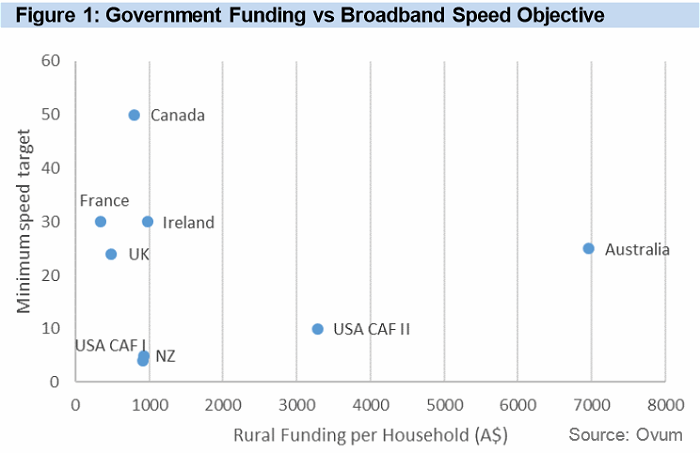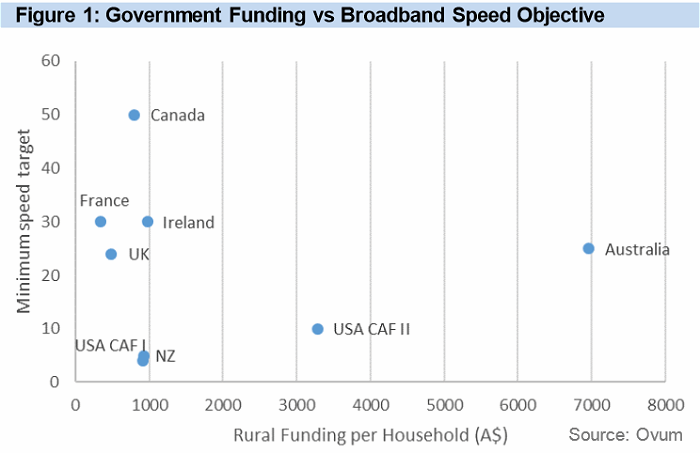The tyranny of distance in Australia is certainly being felt when it comes to rural National Broadband Network costs - and those costs may be felt by all fixed-line superfast broadband users.

"With a minimum available wholesale speed of 25Mbps for all end - users, irrespective of their location or technology platform, Australia has set the bar far higher than seen in equivalent markets such as the United States or New Zealand where programs to date have only mandated speeds of 5Mbps," states a report (PDF) by Ovum on NBN rural broadband funding.
However, this commitment has been pricey, with Ovum indicating Government rural funding of $7,000 per household to connect them. Then there's the ongoing cost of operating the NBN’s fixed wireless and satellite services to these areas; with services expected to run at a major loss.
To pay for these costs, the idea of a broadband tax was floated in December, branded as the "Regional Broadband Scheme".
This would see operators of superfast ( 25 megabits per second or more) broadband services whacked with a levy of $7.10 a month for each fixed-line connection (metropolitan, rural, regional or remote), with the levy increasing to $8 a month by 2022.
The expectation is this levy will be passed on to customers in most instances.
Consultation on the draft legislation has closed. In a submission to the Joint Select Committee on National Broadband Network (NBN) , the Electricial Trades Union (ETU), objected to the tax.
"While we support the fundamental premise that regional customers should have their services subsidised so charges are in line with metropolitan customers, we do not believe that cost should be simply passed on to consumers," stated the ETU (PDF).
" Government should directly fund the difference, as happens with electricity prices in many jurisdictions."
If the government pays, all Australians pay in some form or another, but the impact would be more evenly spread.
The Government is rapidly running out of time to attempt to get their NBN tax legislation passed if it wishes to see it implemented as envisaged by July 1, as parliament's winter sitting finishes on June 22.
There's certainly a pressing need for better internet services in the bush. A 2016 survey indicated 88% of those surveyed in regional areas had services do not meet their needs.



